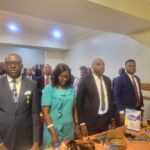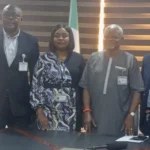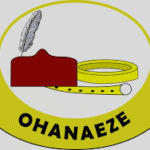By Justina Auta
The 2024 Womanity Index report has revealed that Lagos, Rivers, and Ekiti states recorded the highest responses to Gender-Based Violence (GBV) and harmful practices against women and girls.
The report was released on Wednesday in Abuja by Invictus Africa, a civic organisation promoting human rights and gender equality.
Ms Bukky Shonibare, Executive Director of Invictus Africa, stated that the findings were based on responses from 18,500 participants nationwide, compared to 5,800 respondents in 2023.
She explained that the survey was conducted to assess the progress of subnational governments in preventing and responding to GBV, as well as in promoting gender equality.
She said that the report worked around five indexes.
She listed the indexes of laws and policy; access to legal justice; support services for survivors, information and awareness, as well as budget and spending.
According to her, the states were colour coded and graded based on their performance and progress, which include blue, green, amber, and red.
“The blue states are the ones that are really advancing, amber states are evolving, green states are performing, while red states are still struggling on each of those five indexes.
“This year, we have three states that are now blue states. Lagos is still a blue state, River and Ekiti states are now blue states.
“We have more states that moved from red to amber this year, like Katsina state, and they are now amber state,” she said.
Shonibare said that one of the things that Katsina state did well was to have passed the VAPP Act, which upped its mark in the laws and policies index.
“One of Katsina’s achievement was passing the Violence Against Persons (Prohibition) Act, which improved its score in the laws and policies index.
“Additionally, the state established and launched its sexual assault referral centre, which contributed to its progress,” she explained.
Shonibare added that while some states maintained their previous scores, many moved from amber to green.
She expressed the organisation’s goal for all states to attain blue status.
The Womanity Index also revealed that 63 per cent of Nigerians reported either experiencing GBV or knowing someone who had.
“This means only 37 per cent have neither experienced GBV nor know someone who has.
“When we speak of GBV, we are not limited to sexual violence, such as rape or assault, but also include physical, emotional, economic, mental, and psychological violence,” she said.
Domestic or intimate partner violence was identified as the most prevalent form of GBV, followed by physical violence.
Other forms included mental or psychological violence, sexual violence, and economic violence.
“Data shows that 70 per cent of Nigerians who experience GBV face it at home, followed by public spaces such as markets, schools, workplaces, and religious institutions.
“Over 34 per cent sought help first from family members or relatives, followed by law enforcement,” she noted.
Shonibare emphasised that law enforcement agencies should ideally be the first point of contact.
“However, when asked why people choose specific sources of help, the primary factor was trust.
“This underscores the need for law enforcement and the judiciary to build trust so they can become the first port of call for survivors,” she said.
Prof. Olufolake Abdulrazaq, Chairperson of the Nigeria Governors’ Wives Forum and First Lady of Kwara State, noted the value of the annual ranking in tracking progress and identifying areas needing attention to combat GBV.
“The data is important. This tracks work. It lets us know how we are faring, what we are doing.,” she said.
She urged people to speak out against violence.
“Break the culture of silence, stop stigmatisation, seek law enforcement help and increase women’s representation to end all forms of violence,” she said.
Dr Chichi Aniagolu, Regional Director of the Ford Foundation in West Africa, stressed the importance of data in monitoring progress against GBV.
Rev. Fr. George Ehusani of Lux Terra Leadership Foundation emphasised the impact of GBV on national development.
“A society cannot progress if one in three women and girls are reportedly sexually violated or suffer domestic violence.
“If half of the population; women suffer such violations, the country’s development is hindered.
“The Invictus Womanity Index is not just for women and girls; it is for everyone,” he said.
He called for increased awareness of GBV prevention and urged the strengthening of law enforcement and judicial systems to ensure justice for survivors. (NAN) www.nannews.ng.com
Edited by Kadiri Abdulrahman












